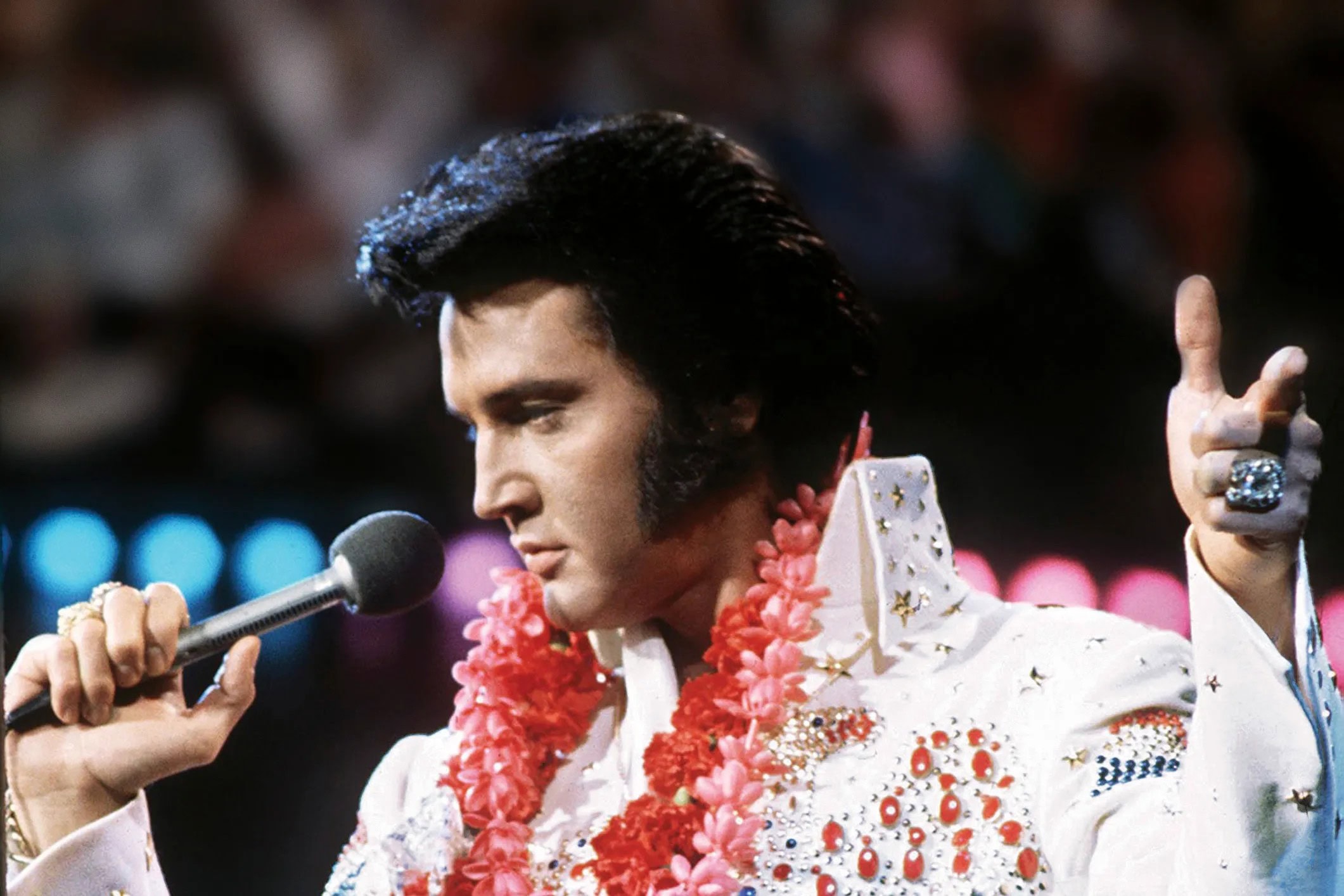
Introduction
For decades, fans have cherished Elvis Presley’s powerful rendition of “An American Trilogy.” To the world, it was one of his most majestic performances—a sweeping fusion of Southern anthems that showcased the King’s unmatched vocal power. But what few ever realized is that this song carried a haunting weight that nearly crushed him.
When Presley first performed it in 1972, audiences were stunned into silence before erupting into thunderous applause. It seemed like the song was written for him—an anthem of faith, struggle, and patriotism all bound into one. Yet behind the scenes, Elvis confided to those closest to him that the Trilogy drained him emotionally like no other song. It wasn’t just music—it was a mirror of his own fractured life.
The three pieces woven into the Trilogy—“Dixie,” “The Battle Hymn of the Republic,” and “All My Trials”—were meant to symbolize unity, hope, and resilience. But for Elvis, they reopened old wounds. The sorrow in “All My Trials” struck too close to his personal battles with loneliness, heartbreak, and the crushing pressure of fame. His close friends later admitted that Elvis would sometimes leave the stage after singing it completely shaken, fighting back tears.
What was supposed to be a patriotic showpiece instead became a private torment. Some insiders now argue that “An American Trilogy” revealed more about Elvis’s fragile soul than any tabloid scandal ever could. It was a performance of triumph, yes—but also of pain, a raw confession hidden inside a song.
Today, when we watch those iconic live recordings, we don’t just see the King of Rock ’n’ Roll at his peak—we see a man bearing the unbearable weight of his crown. “An American Trilogy” wasn’t just a song for Elvis Presley. It was a cry from the deepest part of his soul.